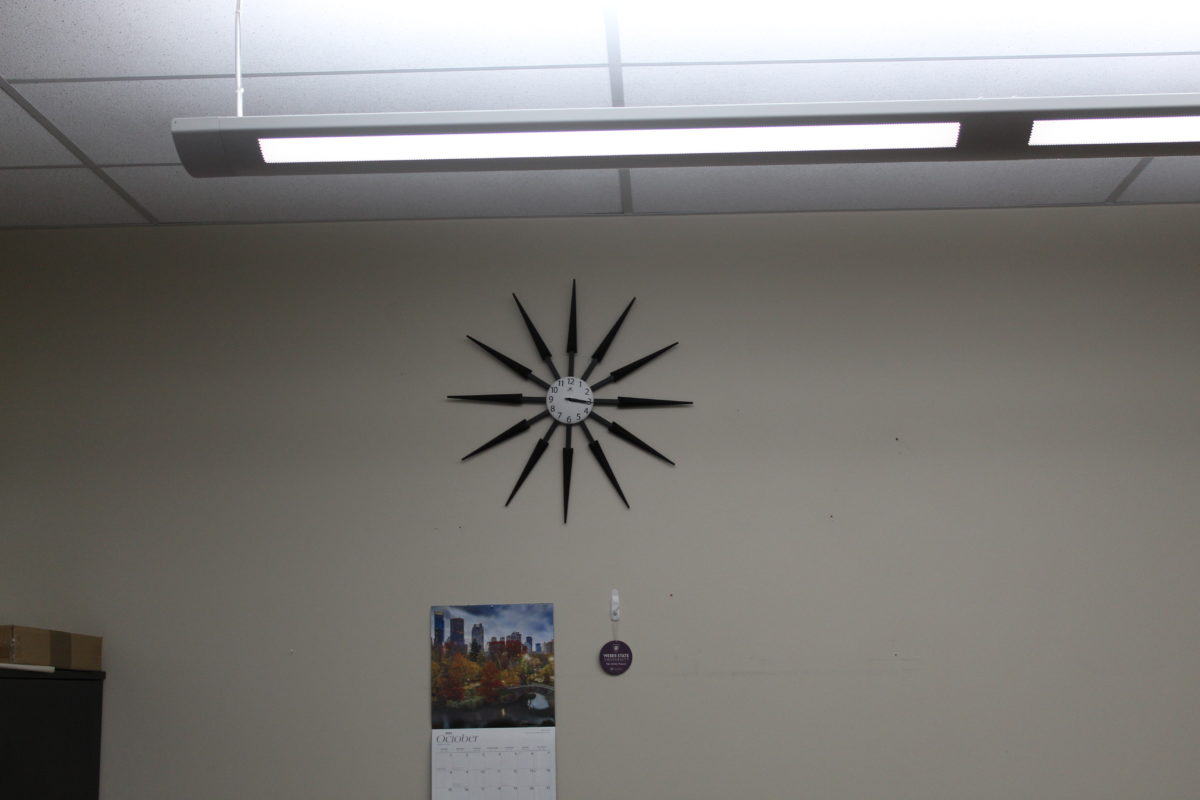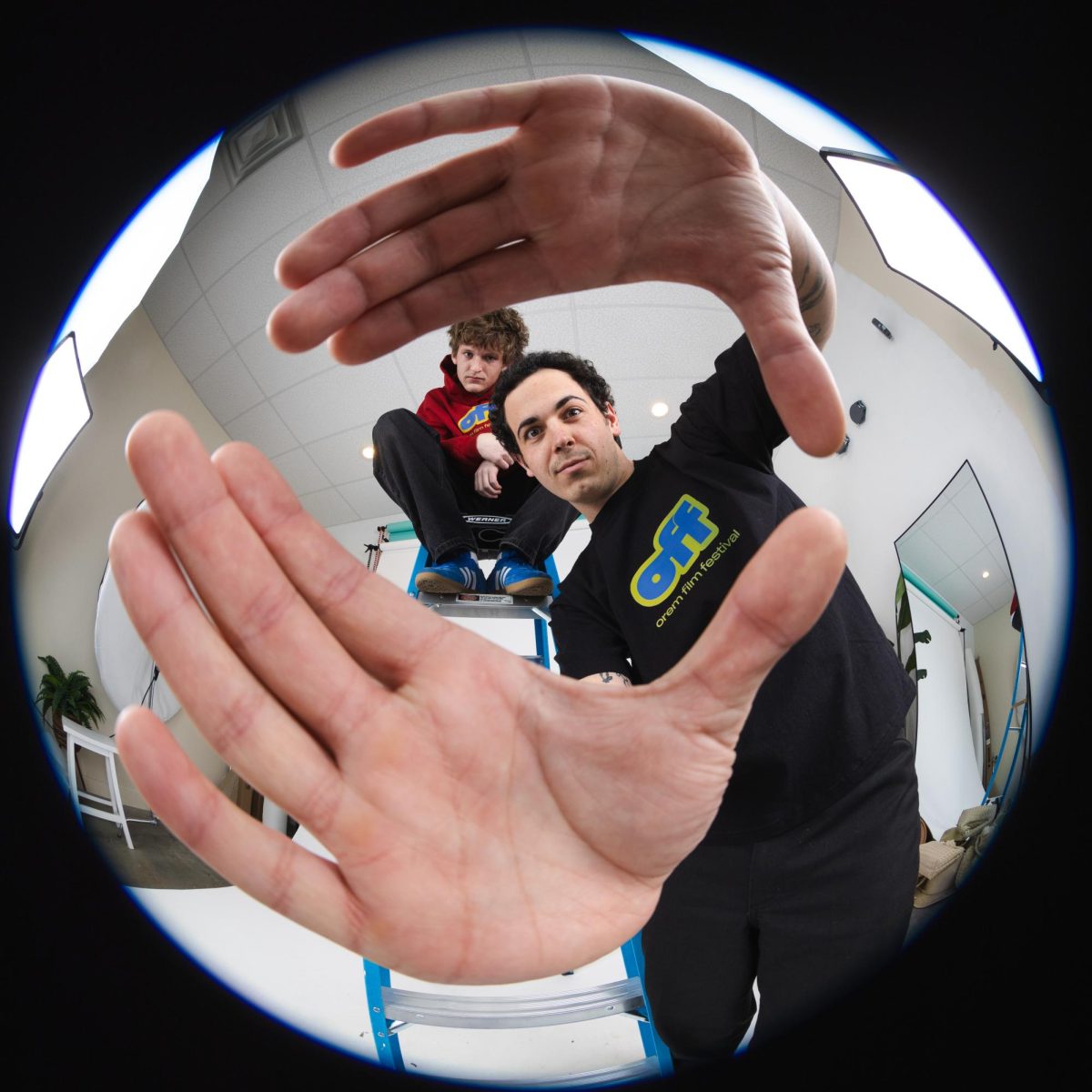Finding a clock in a classroom at Weber State University isn’t always a sure thing, and even when a clock is present, there’s no guarantee that it displays the correct time. Students, faculty and staff might question why that is.
Six years ago, WSU’s Facilities Management made the decision to remove clocks from classrooms.
The original campus clock system was built in the 1960s on an old wired system. The clocks were wired in and tied to a central alarm system, similar to the bell system in most American high schools. That central system and the wiring in it began aging to the point that the clocks were no longer reporting correct times or functioning properly.
With the decline of the original clock system came an important decision: invest a lot of money in a total rewire or remove the clocks.
Jacob Cain, director of operations in Facilities Management, gave careful consideration to this question. Cain administered surveys to students and faculty to determine where individuals felt the money would be best spent, as well as to gain an understanding of how important clocks were to professors.
Some individuals expressed feelings of great importance toward the clocks being in the classrooms. That is, until they discovered how much money would be spent on the rewiring.
Cain asked those individuals if they would still choose to keep the clocks if they knew that money was being taken from other projects. Once the pro-clock individuals contemplated the fact that a total rewire would cost an estimate of a million dollars, the general consensus was to remove the clocks.
Following the removal of the original digital clock system in older buildings on campus, clock installation became by department request only. A centralized broadcast system called Primex was the alternative to the rewire. Primex allows battery powered clocks to sync up to each other as well as auto adjust to time changes.
Cain said that although the clocks have been gone for years now, some professors still put in requests for a clock to be put in their classrooms every few months.
Many of the clocks are positioned in the back of the room, so no students see them. The availability and access to handheld devices students have makes clocks available to them at all times. However, the feelings of necessity are different for instructors.
Laura Stott, instructor of English, heard that the use of Primex clocks was implemented because many professors were complaining about the absence of clocks.
Some professors, like Rebekah Cumpsty, associate professor of English, claimed to not have even noticed the absence of the clocks at all.
Although batteries in the Primex clocks require replacing every few years, it’s helped cut back the maintenance costs significantly. The old wiring system for the digital clocks was roughly $40,000 a year to maintain. Their removal has saved WSU an estimated $20-30,000 yearly.
Eric Buell, WSU freshman, recalls seeing clocks in all but one of his classrooms. Buell mentioned he uses the clocks frequently throughout class and would be bothered by their absence.
Jean Norman, associate professor of journalism and emerging media, made similar claims, saying the presence of clocks is crucial to her keeping track of time throughout her classes.
The Primex clock in one of Norman’s classrooms is running about 12 minutes behind, which causes a lot of confusion for her. To combat the time uncertainty, Norman has taped a face mask onto the clock to avoid further befuddlement.
So, next time you go to check the time in class, try seeing if your classroom has a clock on the wall.
Editor’s note: Jean Norman, associate professor of journalism and emerging media, was interviewed by Gracie Stephenson for this story. Norman is also the adviser of The Signpost, but does not proofread, approve or confirm stories before they are published. The course she teaches in EH 323 is a communications class unrelated to The Signpost.
















Kira Evans • Oct 3, 2023 at 8:40 am
Tell me what’s going on in Tracy Hall where the second hands on the clocks move in 5 second increments. We all thought we were losing our minds when it started happening, we affectionately refer to them as “possessed” now.